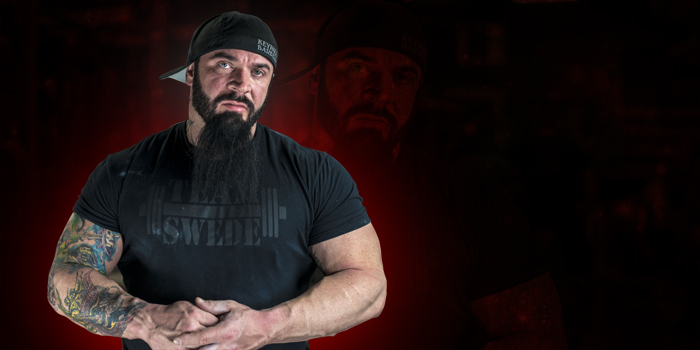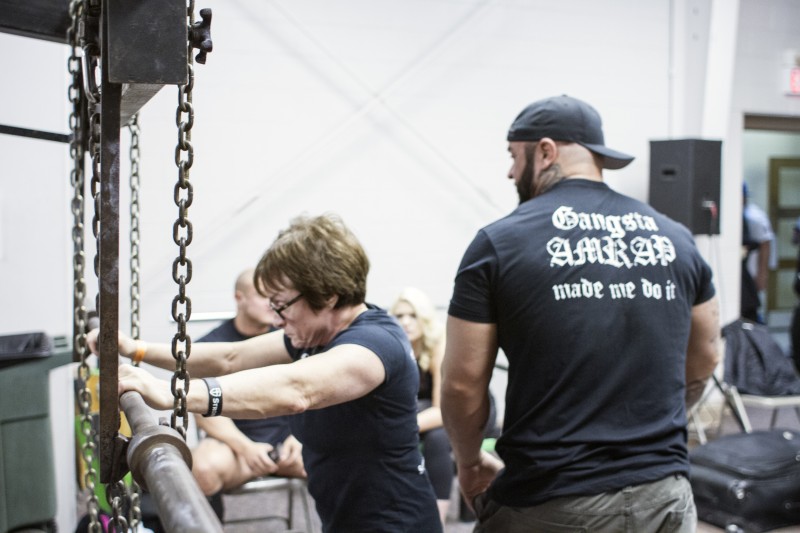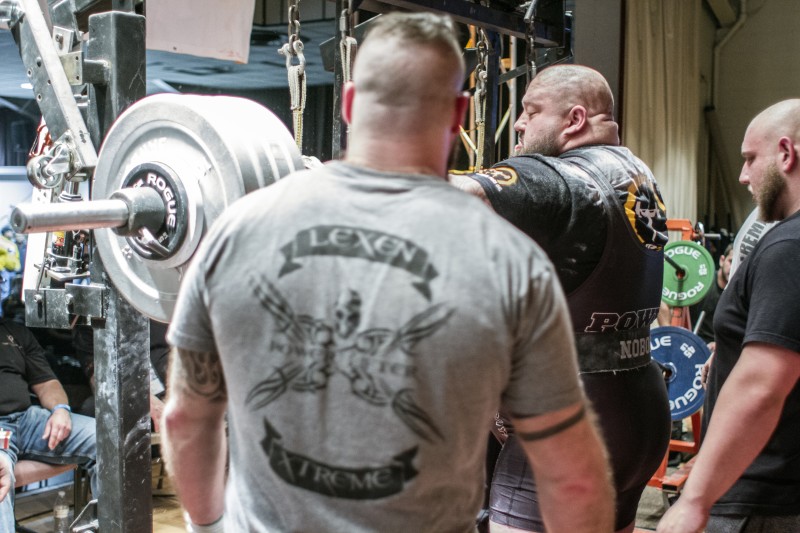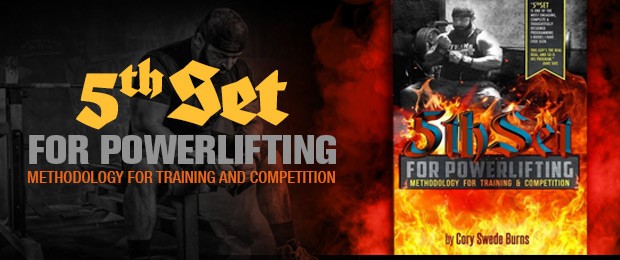
Excuses don't count towards your total.
At least, not at this point. It wouldn't shock me much if I found out tomorrow that some federation was planning to add a "Really Good Excuse" division, where you could count one or more missed attempts toward your total with a good enough argument as to what went wrong. Or a poll where your friends and family get to vote on what your total should be. I would take it in stride. If one of these new divisions were to come about and gain widespread acceptance across the powerlifting world, I would modify my coaching strategies accordingly.
As it stands, however: we are left with adding up our heaviest successful attempt for each of the three lifts, and the sum of those is how a powerlifting total is born.
RECENT: 16 Week 5thSet/Conjugate Mash Up
I realize some of you may believe totals are dropped off by the mythical, jacked-as-fuck powerlifting stork, since no one in the history of mankind has had the patience to actually sit through an entire meet and watch things play out. (I think Arnold lasted about two deadlifts in the XPC audience.) But, no. No. There is a strategy to this, or there definitely should be. Those of you who know me as a coach, know I have a very rigid system for everything. When it comes to attempt selection, I usually have specific numbers in mind for my lifters, for all nine attempts, long before we get to the platform. People have a hard time swallowing that and I can understand why.
After all, how could I know how a lifter will perform on the day of a meet? The answer is pretty simple. There are diagnostic mechanisms, intrinsic to the 5thSet methodology, which allow me to accurately predict how a given lifter will perform in a meet based on how they did during their peaking cycle, fatigued. I have a formula for attempt selection based on method specific data I've curated over many years and countless meets coaching hundreds of lifters. These are not arbitrary figures.
Using my methodology and attempt selection protocol can allow any lifter to perform well on the platform, almost all of the time. That is pretty cool to be able to say.
However (and this is huge), the more advanced a lifter gets or the closer they come to their potential: the more the minutiae matter. There are more factors at play in these cases, and it takes a lot of both knowledge and experience to identify and correct for them. There is no way around that.
This is where the coach comes in. The guy over on the far right-hand side of the screen, in meet videos, leaning over the weight tree, yelling some unintelligible shit to the person lifting. (That's me.)
When I have a guy who is capable of totaling 2250 raw, where every attempt he takes could kill him, or a woman in her mid-sixties capable of totaling 1000 raw, taking the same risks: I may need to deviate slightly from what is ideal for the average lifter. These are exceptional circumstances. I coached both of these to those totals, recently, at the Arnold XPC. Both are lifters I know well and that I've worked with on long term plans for some time, and both achieved exactly what we set out to. The deviation, believe or not, was on the side of caution in these cases. Whenever possible, I like to keep it that way.
Remember, we only get credit for the attempts we are successful with.
MORE: 2017 XPC Finals — JP Carroll Secures 1st Place
In the beginning of a meet "what will be coming next" should stay in the front of any good coach's mind. But most lifters are much more focused on what's happening in that moment than what is still coming down the road, and rightly so. This is where we run into some conflict with lifters who choose to coach themselves. For the athlete, focusing on "right now" is imperative. For the coach, attention must be split between the endgame and the present moment. It's easy to see how it would be hard to do both.
For me, coaching is about separating myself from the moment as much as possible and keeping my eyes on the prize. Observing and correcting technique on a lift is a thoughtless endeavor at this point, but making the correct calls, which often go against my own animal imbecility: that can be more difficult. Working with the lifters I mentioned above at the XPC was no exception, but as usual, I stuck to the plan and it paid off.
Probably the biggest point of controversy during the meet was when I passed on JP Carroll's 3rd squat attempt, even though his second attempt of 905 was the deepest and fastest squat of his career. I had five separate people come up and ask me whether JP was injured or if I'd lost my mind. That's good; I like that. It means I'm seeing things other people aren't: the big picture.
There was only one person who approached me and truly grasped what I was up to, right away. It's worth mentioning, that was Dave Tate.
It's history at this point, but the result was JP benching, deadlifting and totaling more than he ever has (by fifty pounds): 2250 raw, to be exact. He had the biggest raw total at the XPC.
Could he have squatted more? No doubt. He will when it's time.
I predict a 2300 total in six months, and then from there, we will go after the four digit raw squat. Check my track record for the predictions I've made with my lifters in the past, and you'll find it's pretty solid.
It would be an error, operatic in scope if I didn't include another endgame focus which came to fruition around the same time as JP's. The same day, in fact: Ellen Stein's 1000 pound raw total. At 64 years old, weighing only 130 pounds, she was finally able to put it together. This has been a goal for as long as we've known each other. Back to when I first started helping her, wrapping her knees at meets in between my lifters, when I was not even her coach yet. This was the heaviest XPC raw total in the 132 class, which was full of elite lifters 30+ years younger than Ellen. This also gave her a current "open" top-five total on powerlifting watch.
A training year for a powerlifter should be looked at like like a night of poker. You can play it smart, grind some, and leave with the mortgage payment you brought to the table plus some spending money, or you can press your luck, maybe win a big hand here and there, but more than likely hobble out broke as fuck with a bunch of excuses about how thing should've gone. The choice is yours, but I promise you this: the bar is going to call your bluff every single time. Know that going in.













It bears repeating: GOLD.
Please keep these articles coming! Great information and insight.